Not only Vietnam but many ASEAN countries have received “yellow cards” or even “red cards” from the European Commission for illegal, unreported and unregulated (IUU) fishing. Vietnam and other ASEAN nations are taking drastic actions to meet the requirements on IUU fishing prevention.
The EU considers IUU fishing as one of the most serious threats to the achievement of legal and sustainable fisheries and to marine biodiversity in the world’s oceans. IUU fishing contributes to overexploitation of fish stocks and undermines the recovery of fish populations and ecosystems. It damages the marine environment, and adversely affects the economic and social well-being of fishing communities, especially in developing countries where coastal communities may rely heavily on fish resources for food and income.
The EU issued its IUU Regulation in 2008 which was enforced in 2010. The regulation establishes an EU-wide system to prevent, deter and eliminate the import of IUU fishery products into the EU market.
Under this Regulation, the European Commission will issue a “yellow card”, a warning, to a country involved in IUU fishing, which is then subject to intense scrutiny. Such imposition will be reconsidered after six months. If significant progress to correct the violations is made, the “yellow card” will be lifted, and replaced with a ‘green card,’ representing the legal export status. If not, a “red card” will be given, which means a ban on seafood export to the EU.
According to an EU report, Cambodia got a “red card” in March 2014, and the Philippines, a “yellow card” in June 2014, which was lifted ten months later after the country met international requirements on legal fishing. Thailand also got a “yellow card” in April 2015 and has not yet had it lifted even though the country installed an automatic monitoring system on fishing vessels and improved its legal framework on fisheries.

In March 2018, Minister of Agriculture and Rural Development Nguyen Xuan Cuong spent four days working with
the EU and Belgium to speed up the EU’s early lifting of the “yellow card” for Vietnam. Photo: Kim Chung / VNA
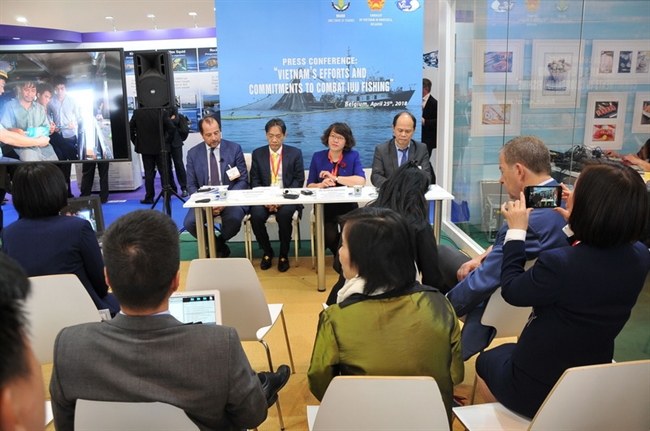
At the Global Fisheries Exhibition in Brussels in April 2018, the Ministry of Agriculture and Rural Development held a press conference to update Vietnam’s efforts to fight IUU fishing. Photo: Kim Chung / VNA
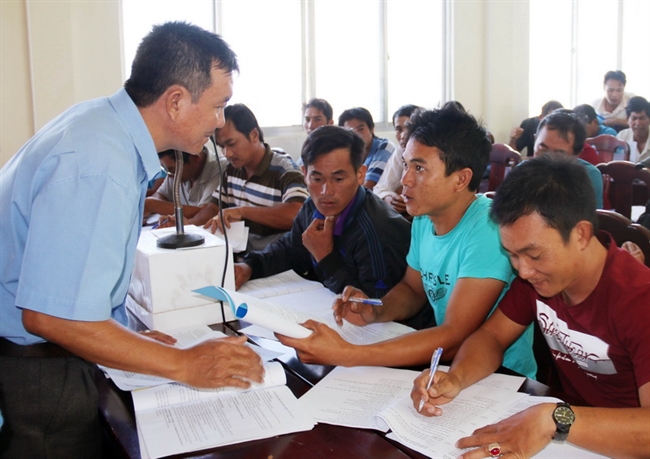
Ninh Thuan province has provided training on legal fishing for local fishermen. Photo: Cong Thu / VNA
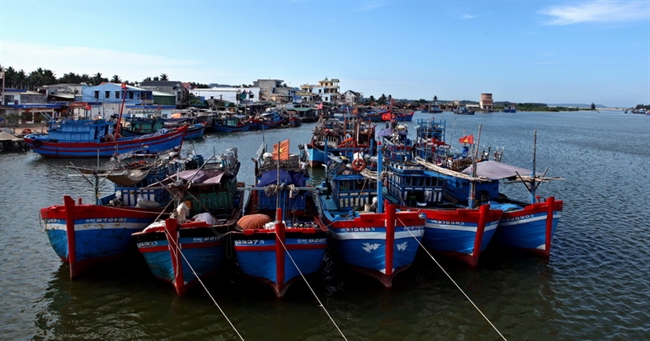
Quang Ngai province is improving its fishing fleet toward reducing small-capacity ships and increasing large ones,
and furnishing safety equipment, including satellite geo-positioning devices. Photo: Cong Dat / VNP
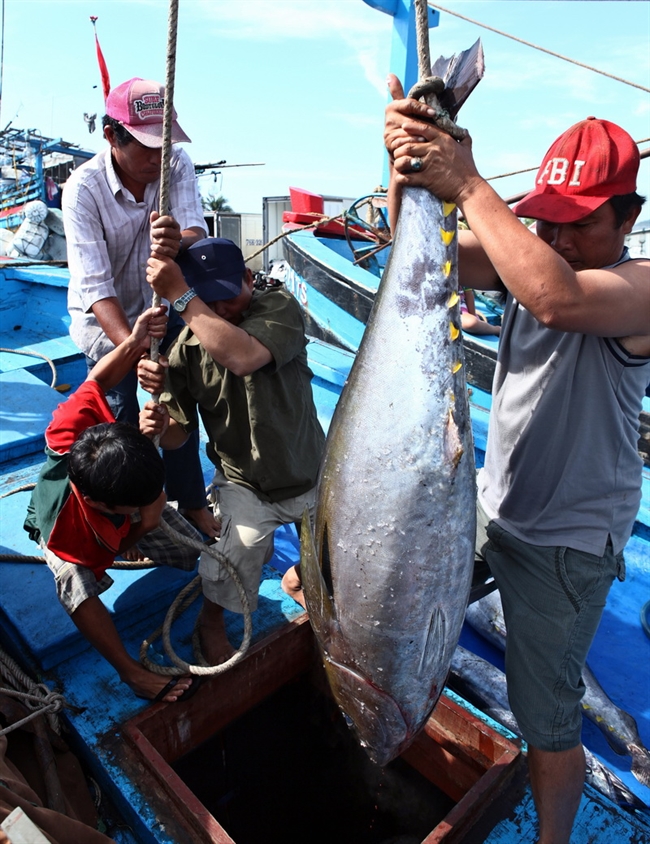
Tuna fishing fleet from Sa Huynh, Quang Ngai province. Photo: Cong Dat / VNP
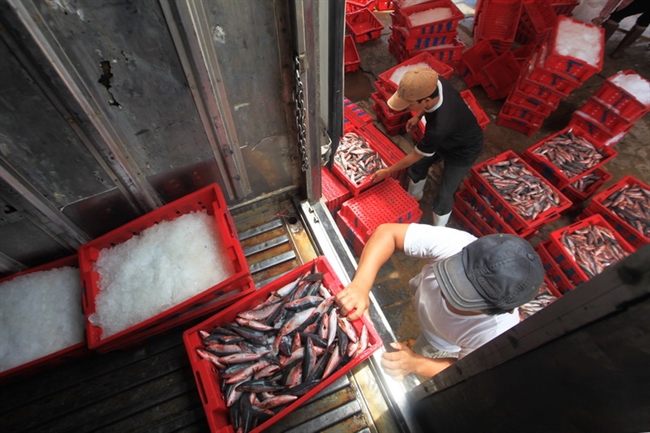
The fisheries industry is making efforts to improve the preservation of fresh seafood. Photo: Cong Dat / VNP
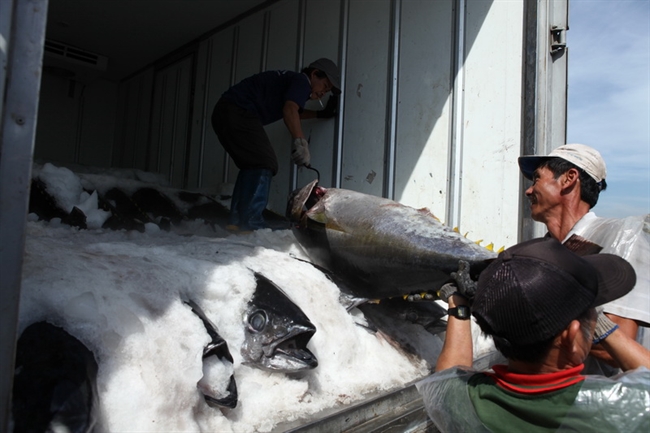
In the first quarter of 2018, Vietnam's seafood exports reached 1.8 billion US dollars. Photo: Cong Dat / VNP.
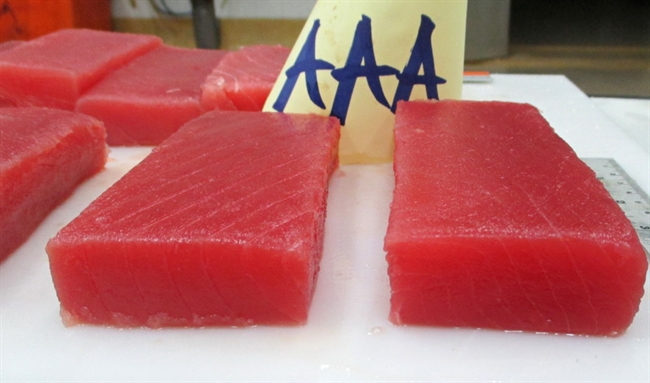
Vietnamese tuna exported to Japan. Photo: Files
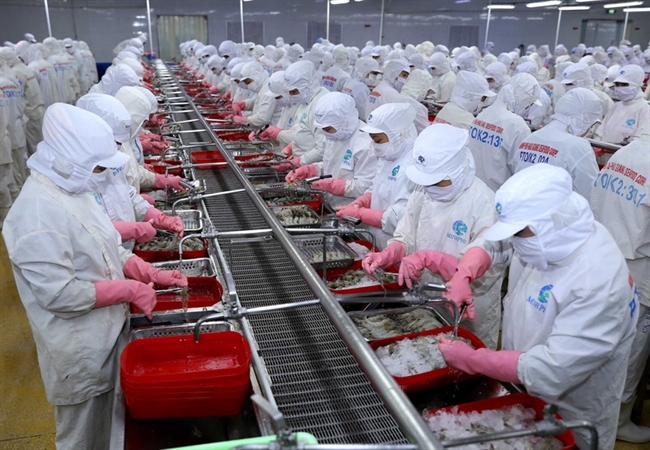
Minh Phu Seafood Corporation is the leading shrimp producer in Vietnam. Photo: Vu Sinh / VNA
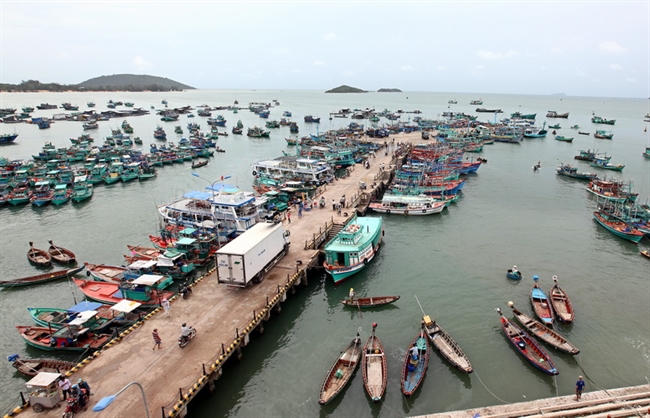
An Thoi port on Phu Quoc Island, Kien Giang province, can accommodate 600 ships. Photo: Le Minh / VNP
|
Vietnam received a “yellow card” in October 2017 for “insufficient actions to fight illegal fishing.” The country is taking measures to solve the problem, including issuing a revised Fisheries Law in 2017. The law, effective in January 2019, imposes hefty fines on illegal fishing, which can amount to 1 billion dong (over 43,000 US dollars) for individual violators and 2 billion dong (nearly 87,000 US dollars) for institutional violators.
Nguyen Quang Hung, deputy general director of the Directorate of Fisheries, the Ministry of Agriculture and Rural Development, said local administrations have asked fishing establishments and ports to remedy the faults noted by the European Commission. The most important of these are managing fishing vessels, and increasing inspection and handling violations at sea and at ports. Special attention is also paid to dossiers for origin tracking and certification of catches at sea.
EU Ambassador to Vietnam Bruno Angelet regarded the “yellow card” as a motivation for Vietnam to modernize its fisheries sector and raise its competitiveness against regional countries.. He also thinks highly of Vietnam’s specific action plans which show the country’s resolution to tackle the problem. However, it needs time to see the results, he said.
Vietnam currently has around 109,000 fishing vessels, 28,000 of which are for offshore fishing. Some 13,000 fishing vessels have been installed with tracking devices.
VNP